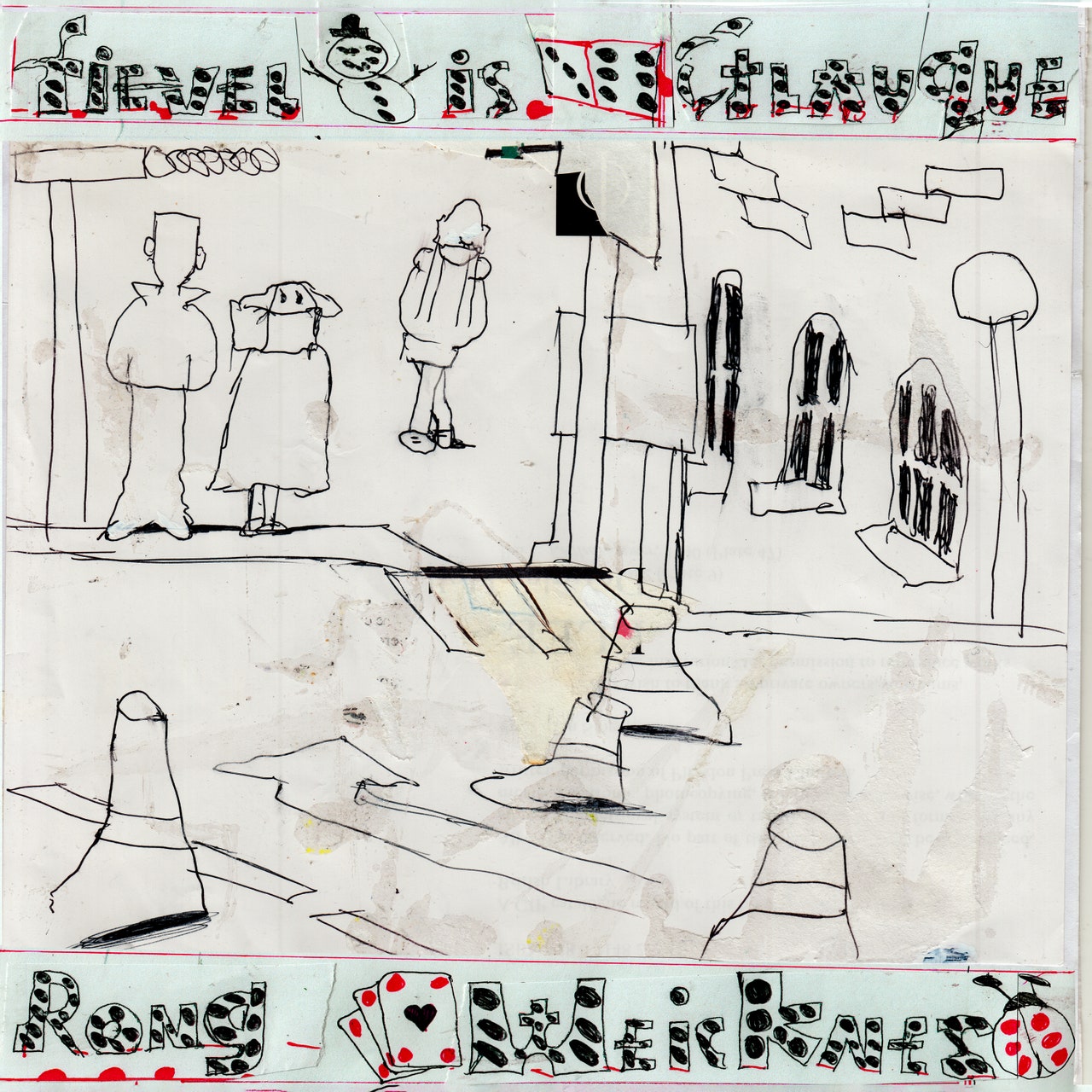Fievel Is Glauque conjure up visions of the busiest forest in the world, dense with hopping rabbits, canoes gliding down the river, and elvish creatures serenading you from thickets and trees. Or perhaps it’s a traffic jam in heaven—a pastel tangle of woodwinds, guitar, drums, keys, synths, and vocals as tickly as wind rushing past your ears. The duo’s latest, Rong Weicknes, is their prettiest, poppiest rush-hour prog-jazz clusterfuck yet.
Performed by an octet, this album expands FIG’s style into full-blown hyper-colored odysseys. Their cultishly adored debut, God’s Trashmen Sent to Right the Mess, was recorded entirely on mono cassette, lending it a charmingly stuffy, attic-dusty atmosphere. The follow-up, Flaming Swords, was done in a single night, with many tracks zipping by in two minutes or less. Rong Weicknes is the result of Zach Phillips, Ma Clément, and their bandmates taking more time. Last summer, they slipped away to a bucolic farm and studio in the Catskills for a week, where the group deployed a technique Phillips calls “live in triplicate.” They laid three varying live takes and then, in meticulous post-production sessions, subtracted bits to land on a final collage of the performances.
The idea that they subtracted anything is hard to believe, because the finished product still often sounds like multiple jam sessions superimposed, a buzzing hive of harmonized insanity. The way it’s mixed feels almost like they’re trying to prevent listeners from extricating and discerning the components—is that keening texture a viola? Are those two different woodwind instruments, or just one doubled in octave? There’s a black midi madness to tunes like “Kayfabe,” which ramps up to a doomsday climax of horns, drums, piano, Clément stretching out until she disappears in the flood. “Dark Dancing” is an overgrown garden of flute, percussion, and warbly sitar. Clément’s voice gets choppy, a breathless stream of grunted ad-libs. Yet the eclectic clutter is strangely danceable, like a disco ball whose every tiny mirror flashes a different shade of neon.
What keeps the album from getting exhausting is the melodic lightness. FIG deftly combine technical freakouts and avant intricacy with airy freshness. It’s a jazzy version of middle-of-the-road ’70s pop like the Carpenters, with a flurry of time signature and tempo shifts and extreme rhythmic flexibility. Highlight “As Above So Below” is cardiac arrest-inducing yet irresistible, leavening the blitz of instruments with a topline that feels like you’re frolicking in the sun. Brief freakouts like the sax tornadoes on “It’s So Easy” are over almost instantly. It’s a Flip-O-Rama between freeform moments when the jazz crew starts blowing wild and Disney-fairytale sweetness.
